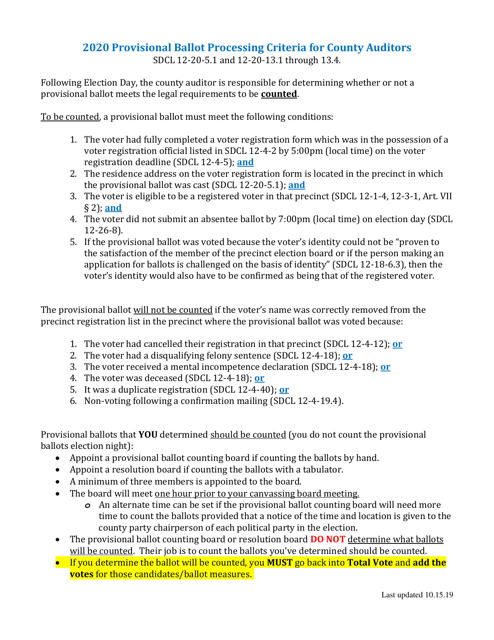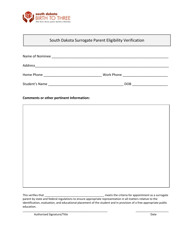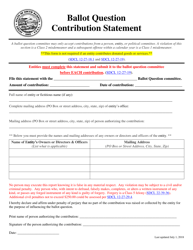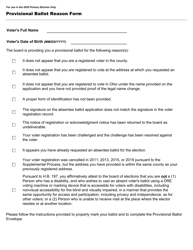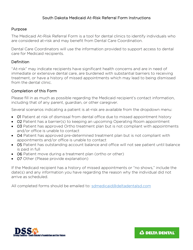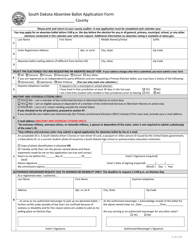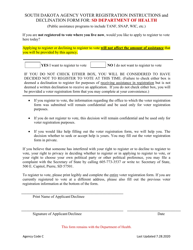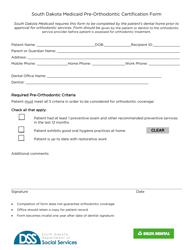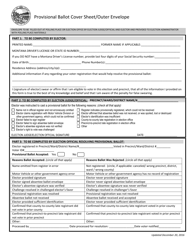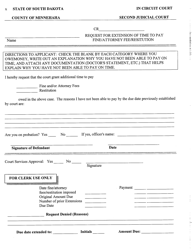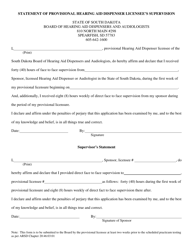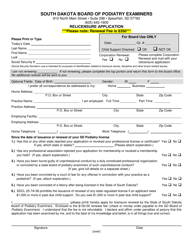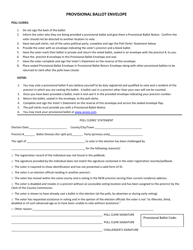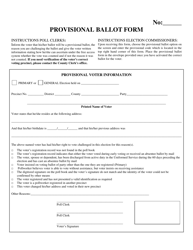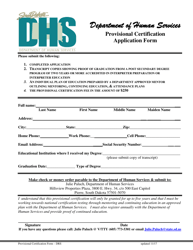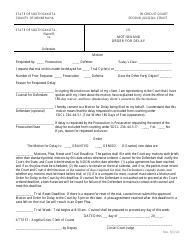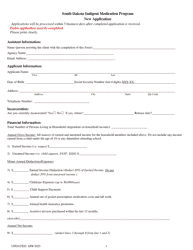Provisional Ballot Processing Criteria for County Auditors - South Dakota
Provisional Ballot Processing Criteria for County Auditors is a legal document that was released by the South Dakota Secretary of State - a government authority operating within South Dakota.
FAQ
Q: What are provisional ballots?
A: Provisional ballots are used when there are questions about a voter's eligibility on Election Day.
Q: When are provisional ballots used?
A: Provisional ballots are used when a voter's eligibility is in question, such as missing identification or not being on the voter registration list.
Q: Who can vote with a provisional ballot?
A: Any registered voter who is unable to vote a regular ballot can use a provisional ballot.
Q: How are provisional ballots processed?
A: Provisional ballots are reviewed by election officials to determine the voter's eligibility before being counted.
Q: What information is required to complete a provisional ballot?
A: Provisional ballot voters must provide their name, address, date of birth, and reason for voting provisionally.
Q: Can a voter track their provisional ballot?
A: Yes, voters can track the status of their provisional ballot to see if it was accepted and counted.
Q: When are provisional ballots counted?
A: Provisional ballots are counted after the voter's eligibility has been verified and confirmed.
Q: How long does it take to process a provisional ballot?
A: The processing time for provisional ballots varies, but they are typically resolved within a few days after the election.
Q: What happens if a voter's provisional ballot is rejected?
A: If a voter's provisional ballot is rejected, they will be notified and given an explanation for the rejection.
Q: Can provisional ballots change the outcome of an election?
A: Yes, if there are a significant number of eligible provisional ballots, they can potentially change the outcome of a close election.
Form Details:
- Released on October 15, 2019;
- The latest edition currently provided by the South Dakota Secretary of State;
- Ready to use and print;
- Easy to customize;
- Compatible with most PDF-viewing applications;
- Fill out the form in our online filing application.
Download a printable version of the form by clicking the link below or browse more documents and templates provided by the South Dakota Secretary of State.
